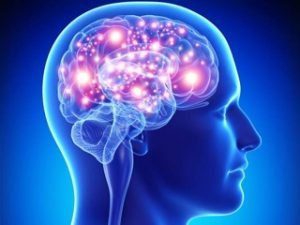By Barry Keate
Barry Keate, has lived with tinnitus over 40 years and has published 150+ research articles on numerous aspects of tinnitus. He is an expert on the condition and a well-known advocate for those with tinnitus.
Editor’s Note: This article is based on a paper published by Hearing Health Magazine and written by Elizabeth Stump. Hearing Health Magazine is a publication of the Hearing Health Foundation in New York City. (1)
Several recent studies have found links between hearing loss and other medical conditions besides tinnitus. Each has carefully noted that these links do not establish cause and effect, so we cannot say that hearing loss contributes to these other conditions or the reverse – just that they tend to come together. About 80% of all cases of tinnitus are accompanied with hearing loss.

A diet rich in vegetables and B vitamins reduces odds of heart disease.
Here are six health issues, which often accompany hearing loss:
1 –Cardiovascular Disease. This includes conditions that affect the heart and blood vessels, including high blood pressure and atherosclerosis, in which plaque buildup in arteries dramatically reduces circulation. A study in the 2011 Journal of American Geriatrics of more than 2,000 older Americans showed cardiovascular risk factors such as high blood pressure and obesity were associated with poorer hearing sensitivity that could lead to age-related hearing loss.
The cochlea is extremely sensitive to blood flow and susceptible to cardiovascular abnormalities. Reduced blood flow limits its supply of nutrients and oxygen.
2 – Chronic Kidney Disease. Also known as chronic renal disease, this is a gradual loss of kidney function as a person ages. An Australian survey found that chronic kidney disease was associated with a 43 percent increased risk of hearing loss. The reason may be that less efficient kidney function allows the accumulation of toxins which that can damage nerves, including hearing nerves.
Traditional Chinese Medicine (TCM), an ancient system of understanding the body, states that tinnitus is an imbalance between the liver and the kidneys. Acupuncture treatment for tinnitus is designed to correct this imbalance.
3 – Cognitive Decline and Dementia. Dementia is a decline in cognitive function that is serious enough to interfere with daily life. Alzheimer’s disease accounts for about 60 to 80 percent of cases. Dementia and Alzheimer’s gradually worsen over time.
In 2013 a JAMA Internal Medicine report found that people with hearing loss had a 24 percent increased risk of cognitive impairment. Another study determined that hearing loss was independently associated with developing dementia. A 2014 study in Neuroimage showed that hearing loss was associated with accelerated brain atrophy and shrinkage, especially in the area used for short-term memory.
For more information, see our article on untreated hearing loss and cognitive decline.
Hearing loss can lead to greater social isolation, which is a risk factor for cognitive decline and dementia. Hearing loss also results in reduced brain stimulation, leading to a decline in thinking skills.
 4 – Depression. This is a mood disorder that causes a persistent feeling of sadness and loss of interest in daily activities. At its worst, it can lead a person to feel that life is not worth living.
4 – Depression. This is a mood disorder that causes a persistent feeling of sadness and loss of interest in daily activities. At its worst, it can lead a person to feel that life is not worth living.
Researchers at the National Institute of Deafness and Other Communication Disorders reported in March 2014 that hearing loss was associated with depression, particularly in older women with moderate hearing loss. As we learned in a previous article, emotions, depression and tinnitus are modulated in the same part of the brain and are definitely linked.
5 – Diabetes. This is a metabolic disease in which the body is unable to produce enough insulin, a hormone needed to convert sugars and carbohydrates into energy for the body. The resultant high blood sugar damages nerves and blood vessels throughout the body and may well damage the inner ear, causing hearing loss.
Japanese researchers found hearing loss was twice as common among people who had diabetes compared to those who did not.
A Brazilian study found between 84 and 92 percent of people with tinnitus also had insulin resistance, where insulin is not fully utilized to convert sugar to energy. It is the first stage of the slide into Type II Diabetes. When participants were placed on a diet suitable for diabetics, 74 percent saw improvement in their tinnitus.
6 – Falls. Among older adults, falls can become a significant health problem and can lead to injury, hospitalization, disability and loss of independence. A research letter in JAMA Internal Medicine examined data from older adults and found that, for every 10 dB increase in hearing loss, the risk of falling increased by one and a half times. A 25 dB hearing loss, defined as mild, was associated with a nearly threefold increase in the risk of falls.
People who can’t hear well may not be fully aware of their environment, making falls more likely. Hearing loss is also cognitively demanding and removes resources for other demanding tasks, such as maintaining gait and balance
Arches Tinnitus Formulas
Arches Tinnitus Formulas can be helpful for many of the conditions discussed above. High potency B vitamins, found in Arches Stress and B12 Formulas, have been clinically shown to reduce plaque build-up in arteries and keep the heart fully functional.
Ginkgo biloba, the basis of Arches Tinnitus Formula, has been studied and found to improve memory and brain function. It has been shown to slow the onset of cognitive decline and dementia. Ginkgo biloba is also known as a natural antidepressant.
Arches Tinnitus Formula has been clinically shown to reduce tinnitus in the majority of people who have it. It is especially helpful for those who have hearing loss-induced tinnitus, which is the great majority of tinnitus cases.
References:
1 – “Have a Hearing Loss, Have Another Health Issue?” Hearing Health Magazine, Fall 2014. P 17-18. http://hearinghealthfoundation.org/hearing-health-magazine
Get Free Shipping!
Order now and get free shipping on either the Tinnitus Starter Kit or Combo Pack. Try the doctor recommended products with clinically proven ingredients for tinnitus. No coupon code required.


